Does Vietnam have their own culture?
越南有自己的文化吗?
以下是Quora网友的评论:
Tim Tran
I take real offense to this as a Chinese Vietnamese and learning about Sinospheric cultures.
Saying Vietnam has no culture because it copies China is like saying Japan and Korea has no culture. Layers of Wafuku exsted before Japan in China, and Vietnamese wore up to 5–6 layers everyday in the past. Japan wasn't the only one. Vietnam also had tons of different styles that become unique to Vietnamese culture. Saying they're the same to Hanfu is like saying Hanbok is the same as Aoqun and Wafuku is the same as Quju.
作为一个华裔越南人和学习中国文化的人,我对这种说法感到非常生气。
说越南抄袭中国,所以没有自己的文化,就像说日本和韩国没有文化一样。中国早在日本之前就出现了层层叠叠的和服,古时候越南人每天要穿5-6层衣服。日本并非特例。越南也有很多不同的风格,共同形成了越南文化独有的风格。说它们和汉服一样,就像说韩服和奥戴一样,和服和曲裾一样。
Let's list them shall we?
我们列列看吧?
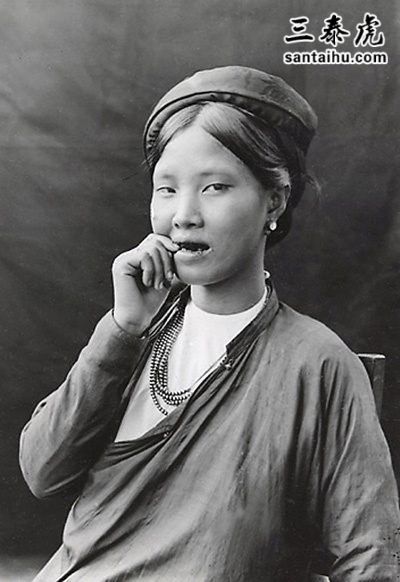
Vietnamese of all classes, ages, and genders dyed their teeth black. Only portions of South China dyed them. In Vietnam, it was the symbol of beauty and even emperors dyed them. Not dying them would be equivalent to not wearing pants today
古代越南人不论阶级、年龄和性别,都会把牙齿染成黑色。而中国只有南方部分地区的人会把牙齿染色。在越南,染黑牙齿是美丽的象征,就连皇帝也会染牙齿。不染牙齿就像现代人不穿裤子。
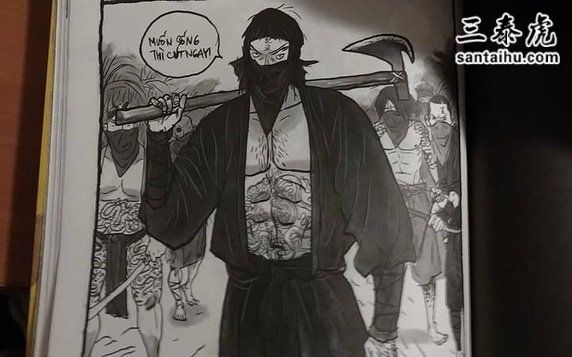
Vietnamese of all classes, ages, and genders tattooed themselves during Li and Tran dynasties. Tattoos were considered as for criminals in China, and Japanese aristocrats didn't tattoo themselves. In Vietnam, tattoo was considered a requirement to be a government official, and emperors were the only ones that could tattoo dragons. Of course, the Ming came and wiped that mindset out, and tattoos became taboo by then.
在李朝和陈朝时期,越南人不论阶级、年龄和性别都会纹身。但在中国,只有罪犯才需要刺青,日本贵族也不纹身。而在越南,想成为政府官员,必要条件就是要有纹身,皇帝是唯一可以纹龙的人。当然了,明朝人的到来废除了这种做法,纹身在当时成为了一种禁忌。
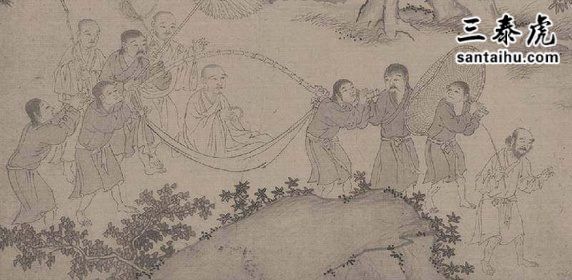
Vietnamese of all classes, ages, and genders preferred to walk barefoot. It was convenient and efficient to them. Government officials pre-Nguyễn walked into Imperial courts barefoot. Emperors and empresses during their regular days preferred to walk barefoot for convenience. Of course, they wore shoes too, but for important occasions.
越南人不论阶级、年龄和性别都喜欢赤脚走路。这对他们来说既方便又高效。阮朝之前的官员甚至赤脚进入宫廷。为了方便,皇帝和皇后在日常生活中也更喜欢赤脚行走。当然,他们也会穿鞋,不过只在重要场合穿鞋。
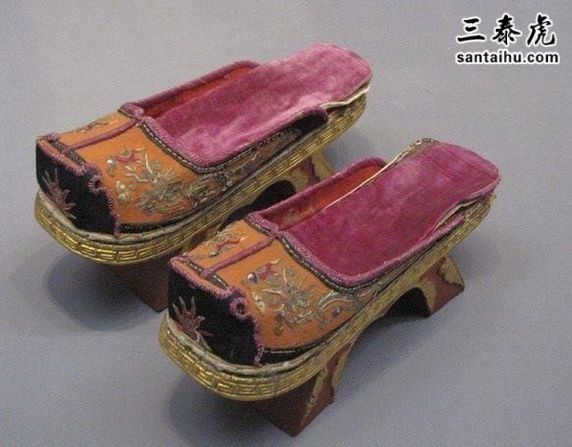
Speaking of shoes, Vietnamese shoes for women were distinct in that they revealed heels. Unlike Chinese, who binded their feet and considered that beautiful, Vietnamese prided themselves in their exposed feet. The prettier your heels, the prettier you were. So shoes revealed heels for that purpose. And because Vietnamese loved to walk barefoot, they did not bind their feet.
说到鞋子,越南女性的鞋子很独特,因为她们会露出鞋跟,不像中国人把脚裹起来并以此为美,越南人以自己裸露的脚为美。脚踝越精致的女子就越漂亮,所以越南的鞋都是不包裹脚踝的。因为越南人喜欢光脚走路,所以他们从不裹脚。
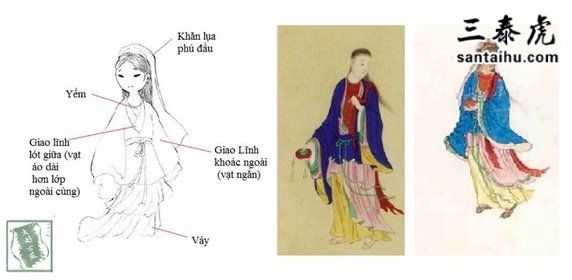
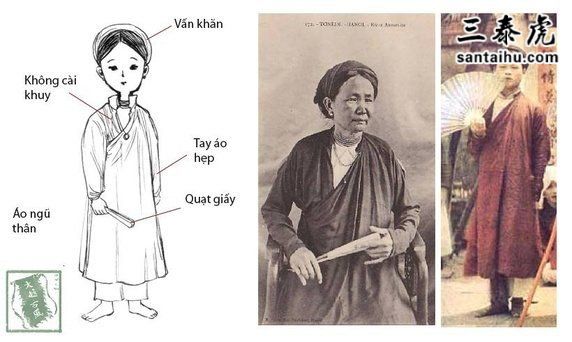
Hairstyles of each dynasty differed from China. During Lí and Trần, everyone preferred to cut their hair or (for men) go bald, usually for religious purposes (Buddhism). This contrasted from Chinese, who let their hair long and tied it into a bun through Confucian etiquette. Of course Vietnamese had hair-buns as well, but not as popular as short hair. During Lê, men and women preferred flowy long hair. The longer and silkier your hair, the prettier you looked, including men. So everyone let their hair down and some even touched the ground. This contrasted from Chinese, who never ever let their hair down. In Sinospheric cultures, only Heian Japan and Lê Vietnam let their hair all the way down, while Koreans and Chinese tied their hair up. By Nguyễn dynasty, hair-buns and turbans were preferred. This turban was unique to Vietnam and not the same as other religious turbans.
越南每个朝代的发型都和中国不同。在李朝和陈朝,人们出于宗教目的(佛教)喜欢剪短发或光头(男子)。
这跟中国人遵从儒家礼仪蓄长发、扎发髻形成了鲜明的对比。
当然,越南人也会扎发髻,但不像短发那么流行。黎朝时的男女更喜欢飘逸的长发。
头发越长越柔滑,就越漂亮,男人也是如此。所以当时每个人都披散头发,有些人甚至能垂到地面。
这跟中国人形成了鲜明的对比,中国人从不散发。
在汉化圈文化中,只有平安时代的日本人和黎朝时的越南人会披头散发,而韩国人和中国人则都把头发束起。
到了阮王朝,发髻和头巾开始流行。这种头巾是越南所特有的,和其他宗教的头巾都不同。
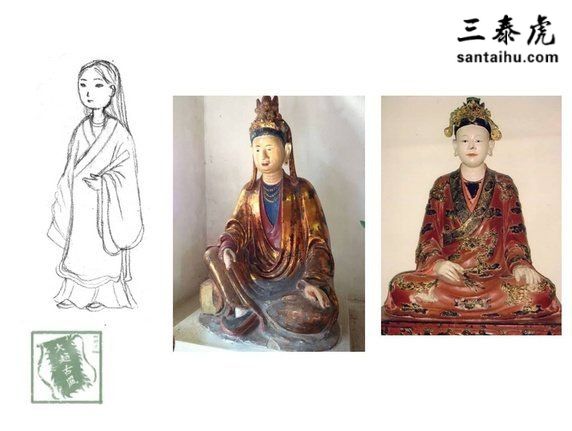
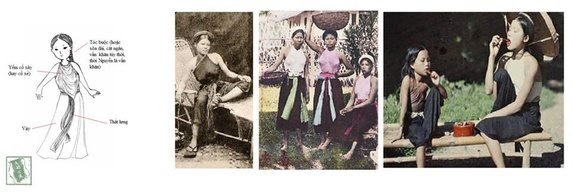
Vietnamese fashion differed from China due to tropical climate. Vietnamese mostly preferred darker colors as regular wear. During Lí, Vietnamese wore Song-styled cross-collar Hanfu. By Trần, Vietnamese wore round-collar Yuanling Pao style, except there was no belt and lots of men preferred to wear underwear instead of pants. By Lê, cross-collar Changao style was preferred, but there was no folded skirts, and the collar was so open that you usually revealed your upper underwear or your chest due to hot climate. But that doesn’t mean Vietnamese liked to expose themselves. They were historically one of the most covered up people in Southeast Asia, and their Yếm (underwear) covered everything that was supposed to be covered. Meanwhile, Chinese collars all touched their necks. By Nguyễn dynasty, Vietnamese adopted Ming styled high collar, but their collars were way shorter, they all wore pants/trousers, and they all preferred tight-sleeved. By French colonialism, this attire became modern Áo Dài and was tightened at the waist. This dress had nothing to do with Qipao except that they were born at the same time, meaning same tastes in tight western clothing.
由于地处热带气候地区,越南的服饰和中国很不一样。越南人大多喜欢日常穿着深色服装。李朝时越南人穿着中国宋代的交叉领汉服。
陈朝时越南人穿不带腰带的圆领长袍,很多男子不穿长裤,而是穿亵裤。
黎朝时人们更喜欢交叉领的长袄,但没有搭配折裙,因为天气太热,领口开得很大,常常会露出上半身的内衣或胸部。
但这并不意味着越南人喜欢穿着暴露。在历史上,他们是东南亚裹得最严实的民族之一,他们的内衣把该遮盖的地方都遮盖了。
当时的中国人衣领都高到了脖子。到了阮朝,越南人采用了明式高领,但衣领要低得多,他们穿裤子/裤子,喜欢窄袖子。
因为法国的殖民统治,这种服装演变成了现代的越式窄腰旗袍。
这种服装和旗袍毫无关系,只是在同一时期出现,这代表着他们对西方紧身服饰有着相同的审美。
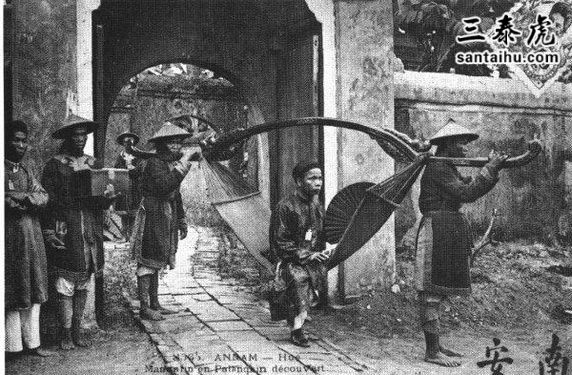
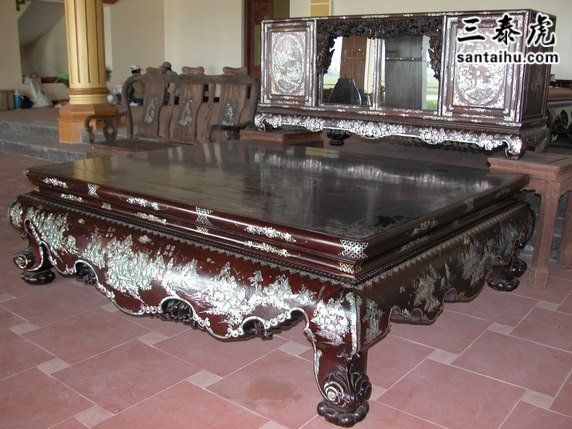
Vietnamese used different furniture and transportations. Vietnamese rode on elephants. Vietnamese used hammocks as transportation (aside from Imperial families). Vietnamese used raised platforms in every dynasty. Vietnamese put meals on mâm before eating.
越南人的家具和交通工具也不同。越南人骑大象。越南人用吊床作为交通工具(皇室除外)。历朝历代的越南人都用桌台。越南人在吃饭前把饭菜放在一个大圆盘上。
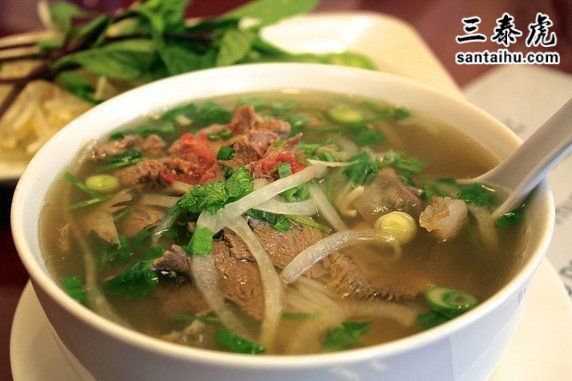
Vietnamese cuisine is unique. It has Vietnamese, Chinese, and French influences. Fish sauce from Vietnam is distinct. Phở is a combination of all 3 elements. Huế imperial cuisine is also extremely rich and refined.
越南菜独具风味。它受到越南、中国和法国的影响。越南的鱼露很独特。牛肉汤粉正是这三种元素的结合。越式御膳也极为丰富精致。
Chinese cannot read Vietnamese writing system. Chữ Nôm was created for vernacular Vietnamese, and it was used with Hán Tự since there are so many Chinese loanwords (like Japanese and Korean). Quốc Ngữ then appeared and replaced it.
中国人看不懂越南的文字系统。喃字是为越南方言创造的文字,由于有很多中文外来词(就像日语和韩语),所以需要和汉字一起使用。
Vietnamese indigenous religion is very diverse and matriarchal. Vietnamese most popular religious cult is Đạo Mẫu, which worships over hundreds of goddesses and gods. Despite having male gods, the religion has an extreme number of female goddesses and they are all extremely powerful beings that sit atop the hierarchy.
越南本土宗教非常多样化,是母系宗教。越南最受欢迎的宗教崇拜是母道教,祭祀数百位女神和男神。尽管有男神,但该教有大量的女性女神,她们都非常强大,位列最高等级。
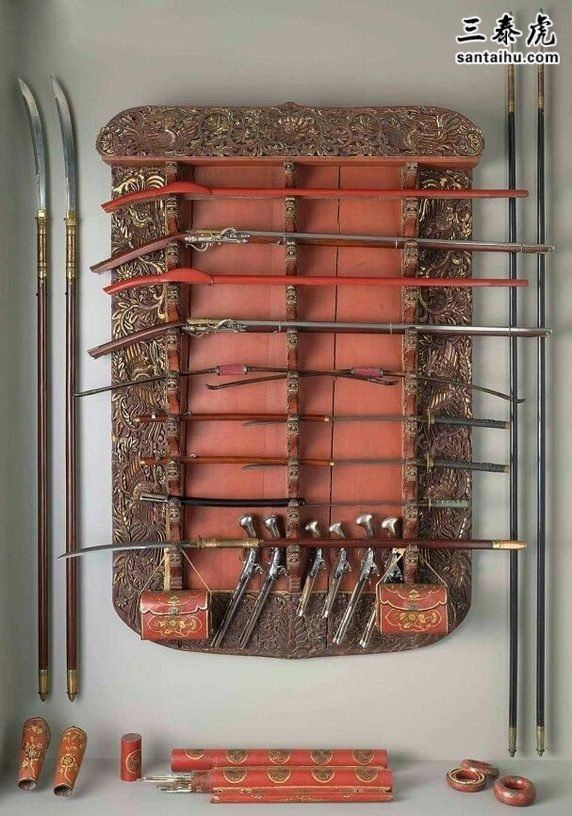
Vietnamese have unique amounts of weapons. Ming Chinese bought a huge ton of weapons from Vietnam. Vietnamese weapons were famous for being extremely decorative, and aristocratic weapons were covered with gold, pearls, and silver.
越南人拥有许多独特的武器。明朝中国人从越南购买了大量武器。越南武器以极具装饰性而闻名,贵族的武器上镶满了金饰、珍珠和银饰。
Vietnamese have unique amounts of beautiful patterns. The most distinct one is probably the fire blade pattern of Restored Later Lê, which Chinese don't have.
越南有许多独特的美丽纹饰。其中最特别的可能是后黎时期的火刃纹饰,在中国从未发现。
Vietnam's original culture, called Đông Sơn Son culture, was one of the Baiyue tribes. The Baiyue that assimilated with China had a similar culture to ancient Vietnam because they came from a similar source.
越南的独有文化,称为东山文化,曾经属于百越部落。被中国同化的百越文化与古越南相似,因为他们师出同源。
Gabriel Martin
Vietnam's influence on the world is still low, so even Vietnamese people do not know much about the unique points of their culture. China's influence on the world is more than that of Vietnam, most people know about elements of Chinese culture and compare it with elements of Vietnamese culture influenced by China, so they just see similarities between Vietnamese culture and Chinese culture.
越南如今在全世界的影响力还很低,就连越南人自己也不太了解越南文化的独特之处。中国对世界的影响力比越南大,所以大多数人都对中国文化有所耳闻,并将其与深受中国影响的越南文化进行比较,所以他们只看到越南文化和中国文化的相似之处。
As seen on Quora, when asked about the similarities between Vietnamese culture and Chinese culture, many people answered very knowledgeable. But when asked about the difference between Vietnamese culture and Chinese culture, very few people answered. Some people (be it Vietnamese or people from other countries) say "we are all human, why should we care about those differences?". So, "in history lessons, why should we care about the differences between European cultures and Asian cultures when both Europeans and Asians are human?", "why is the whole world not united into one country instead of more than 180 separate countries?".
正如我们在Quora上所看到的那样,当被问及越南文化和中国文化的相似之处时,许多人都显得颇有见地。但当被问及越南文化和中国文化的差异时,回答者寥寥无几。有些人(越南人和其他国家的人都一样)会说:“我们都是人,为什么要在意这些不同呢?”
所以,“既然欧洲人和亚洲人都一样是人,我们为何要在历史课上关心欧洲文化和亚洲文化的差异呢?”
“为什么不把整个世界统一成一个国家,而要分出180多个独立的国家呢?”
Nhat Minh
Does Austria have their own real culture? I know that they are basically Germany…
Does Switzerland have their own real culture? I know that they are influenced by France, Germany, Italy…
Does USA have their own real culture? I know that they are influenced by basically the whole world…
And the list goes on.
奥地利有自己的文化吗?据我所知奥地利人基本都是德国血统…
瑞士有自己的文化吗?据我所知他们深受法国、德国、意大利的影响……
美国有自己的文化吗?据我所知他们是全世界的大融合…
这样的问题可多呢。
Also, firstly, if you look into the traditional costumes more than 5 seconds you would see that they’re in fact very different. Secondly, just looking at the costume to draw a conclusion about the culture is like me looking at rice in the meals and say, hey, do all the countries in Asi have their own culture? Why are they all eating rice?
首先,如果你仔细观察越南的传统服装,看上5秒钟,你就会发现它们其实很不相同。其次,光凭服装得出关于文化的结论,就像我看着碗里的米饭,然后说,听说亚洲所有的国家都有自己的文化?那他们为什么都吃米饭呢?
Brendan Brogan
Yes, absolutely. It is a syncretic culture that since the 1300s vacillates between a fairly free, decentralized and open minded culture and a more stern, centralized and prescriptive variant. Vietnamese culture is not unlike North American cultures in that it is heavily based on that of its foundational colonizer (China) and yet is more prone to change according to the whims of the diverse cultures with which it has more recently been in contact as well as those that currently live within its borders. It is a culture that prizes hospitality, intellectual curiosity, filial piety, hierarchy, respect for elders and civic authority
是啊,当然有了。越南文化是一种融合的文化,自14世纪以来,越南文化就在一种自由、分权和开放的文化和一种严厉、集 权和蹈矩的文化之间寻找平衡点。越南文化与北美文化并没有什么不同,因为它在很大程度上基于殖民者(中国)的文化,但也随着近代传入的各种文化及目前越南境内文化而积极变化。越南文化尊崇好客、好学、孝顺、等级、尊老和权威。
 美版知乎:越南在文化上和中国相似吗
美版知乎:越南在文化上和中国相似吗 你觉得越南好还是中国好
你觉得越南好还是中国好 为什么韩国人和越南人已经不再使用
为什么韩国人和越南人已经不再使用 从游客的角度看,越南和中国有什么不
从游客的角度看,越南和中国有什么不 越南只落后中国10年吗?我最近总能听
越南只落后中国10年吗?我最近总能听 尼泊尔和印度的关系,与越南和中国的
尼泊尔和印度的关系,与越南和中国的 你觉得中国和越南的关系怎么样
你觉得中国和越南的关系怎么样 Quora:中国人嫉妒印度优秀的文化和
Quora:中国人嫉妒印度优秀的文化和